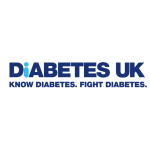"Dehydration is a common health issue that occurs when the body loses more water than it consumes. This imbalance disrupts normal bodily functions, possibly leading to various health complications if the issue is not promptly addressed."
UK Care Guide Tweet
Ways to Prevent Dehydration
During hot weather or during physical activity especially, preventing dehydration is crucial, and regularly sipping small amounts of water can help with this by maintaining your body fluid levels.
The National Institute for Health and Care Excellence (NICE) advises those at risk of dehydration to drink enough fluid to keep their urine a pale, clear colour.
Rehydration solutions or sports drinks can also be beneficial, particularly if you are sweating profusely after being physically active in hot weather.
These drinks replace not only fluids but also crucial electrolytes lost through sweat, but should be used in moderation due to their high sugar content.
In cases of moderate to severe dehydration, medical attention is necessary and IV fluids may be required. If you suspect that you or someone else is severely dehydrated, a healthcare provider should be contacted immediately.






















